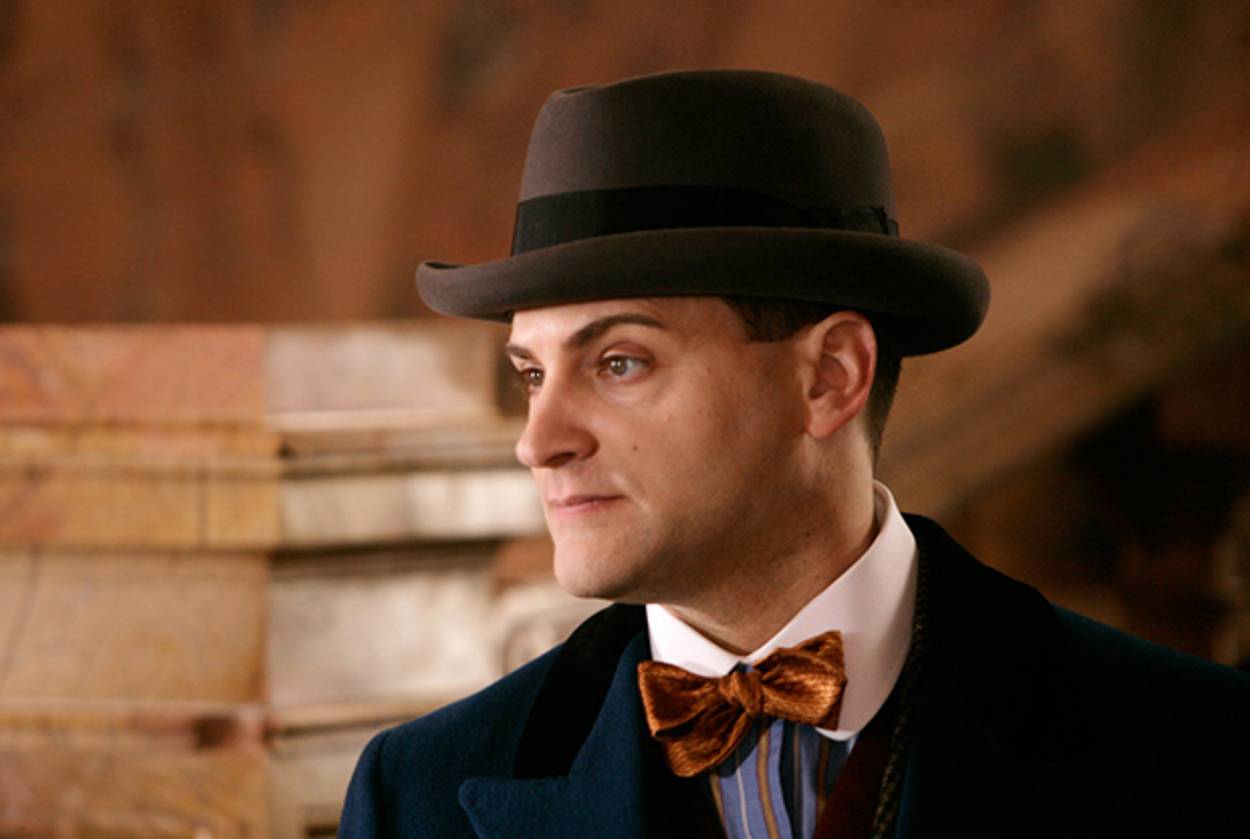‘Boardwalk Empire’ Returns Without Rothstein
HBO show’s final season opens in 1931, after the real-life gangster was killed




As Boardwalk Empire’s fifth and final season aired Sunday night, fans learned that it would take place in 1931—seven years after the events of the fourth season. While the time jump served to forward the show’s plot, it meant one major figure would be missing: By 1931 Arnold Rothstein—real-life gangster and one of Boardwalk’s most fascinating characters–had already been assassinated.
Rothstein, of course, was Jewish. To say he played a major role in establishing the Jewish mob would be a bit reductive, as Rothstein helped define the idea of a mafia kingpin as we know it today.
On the show Rothstein’s character, played by Michael Stuhlbarg, seems almost harmless. He drinks milk instead of scotch, eats chocolate cake, and sports an effete, self-effacing grin. But perhaps it was indeed his demure, business-like approach to crime that allowed Rothstein to avoid conviction, even when accused of fixing the 1919 World Series. He managed to convince eight major league baseball players on the White Sox to throw multiple games against the Cincinnati Reds. Rothstein was such a methodical gambler and bookmaker that his associates began referring to him as ‘The Brain’—a title ironically given to Woody Allen’s character in his 2000 movie Small Time Crooks. Rothstein himself may also have had a cameo of sorts in The Great Gatsby as the game-fixing character Meyer Wolfsheim.
If mobsters before Rothstein had been easy to convict, AR (as he’s known on the show by fellow criminals Lucky Luciano and Meyer Lansky) managed to become so deft at racketeering that he not only isolated himself from the actual crimes he committed, but his activities teetered on the brink of legitimacy: he acted as a sort of unofficial emissary for New York City’s Tammany Hall. Rothstein pioneered the shift from street crime to racketeering; if Al Capone was the Don of his South Side outfit, Rothstein was a CEO. Which is to say, there’s more of Rothstein in Vito Corleone than there is of Al Capone.
While AR’s gambling won him million after million, it also, as is often the case with a professional career in criminal gambling, led to his death. In 1928, Rothstein was shot at a poker match after a losing streak during a game of poker that landed him roughly $300,000 in the hole (about $4.2 million dollars today). In Season 4 of Boardwalk Empire, one intelligence officer remarks that Rothstein lost half a million dollars at the track, smiled, and then sat down at a diner to eat a slice of cake.
After Rothstein’s death Meyer Lansky acted as the executor of The Brain’s criminal estate and divided Rothstein’s operations among crime bosses in New York.
So as the show begins in 1931, we are left in a world without the Jewish kingpin enigma Arnold Rothstein. Whether AR was a problem gambler, or a criminal visionary, or even perhaps a Jazz Age Lex Luthor depends on who tells the story, but this much is certain: a bow tie and a smile have never been more menacing.
Related: Boardwalk Empire Blues
Alexander Aciman is a writer living in New York. His work has appeared in, among other publications, The New York Times, Vox, The Wall Street Journal, and The New Republic.